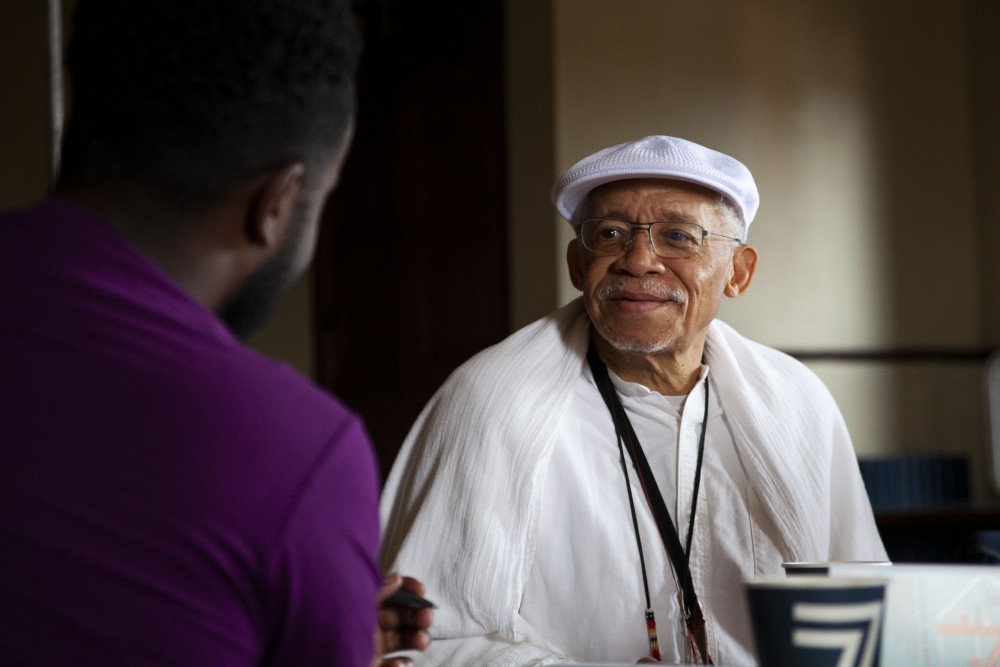A workshop held this week in Cedar-Riverside aims to promote environmental sustainability and support artists and musicians on the West Bank.
The annual West Bank Crash Course, hosted by the West Bank Business Association, invites locals and those from outside the community to learn about the Cedar-Riverside neighborhood. The three-day event, which kicked off Wednesday evening, changes each year as needs in the neighborhood and business community shift. Amid safety concerns in the neighborhood, last year’s event focused on business security.
“It evolves year to year based on the needs of the neighborhood,” said WBBA Executive Director Jamie Schumacher.
This year’s topic of sustainability stems from citywide conversations surrounding the Minneapolis 2040 Comprehensive Plan, which sets goals like sustainability, for the City of Minneapolis, among other aims.
“A lot of our businesses still rely on vehicular traffic,” Schumacher said. “So, what can we do to move our businesses towards more environmentally-friendly, transit-oriented traffic?”
Louis Alemayehu, an environmental educator at the Higher Education Consortium for Urban Affairs, co-led a session on sustainability for businesses. He said that making the neighborhood more sustainable and addressing climate change citywide will require a collective and united effort.
“There’s going to be a lot of pain whether we want it or not but there’s also a lot of opportunities,” Alemayehu said about climate change. “Whatever the new world is going to be, it’s either going to come through us or over us.”
Our Streets Minneapolis, an organization that works to promote pedestrian and cyclist safety, facilitated a discussion about improvements in the city’s Transportation Action Plan, which will guide transit development in Minneapolis over the next decade.
Sarah Tschida, a program coordinator at the University of Minnesota’s Center for Urban and Regional Affairs, bikes to work regularly through the West Bank. She said she would like to improve signage in the neighborhood to allow people to better understand their transit options.
“I would love to have a better way-finding system … so that you know that there’s a light rail stop right here [in Cedar-Riverside] because the connection from the University of Minnesota, for example, is not super clear,” she said.
Jameson Wiltermood, an employee at the West Bank’s Hub Bicycle Co-op, said he would like to see more established rules for cyclists and drivers alike.
Friday’s workshop will focus on supporting artists and musicians on the West Bank. The neighborhood is home to several theaters, music and arts venues. Musicians and artists draw many people into the area, Schumacher said.
But, they often do not have access to the same business networks and resources other entrepreneurs or small businesses might have.
“They’re small businesses, too,” she said. “Just because they don’t have a footprint in the neighborhood doesn’t mean they don’t need a business-level type of support.”














